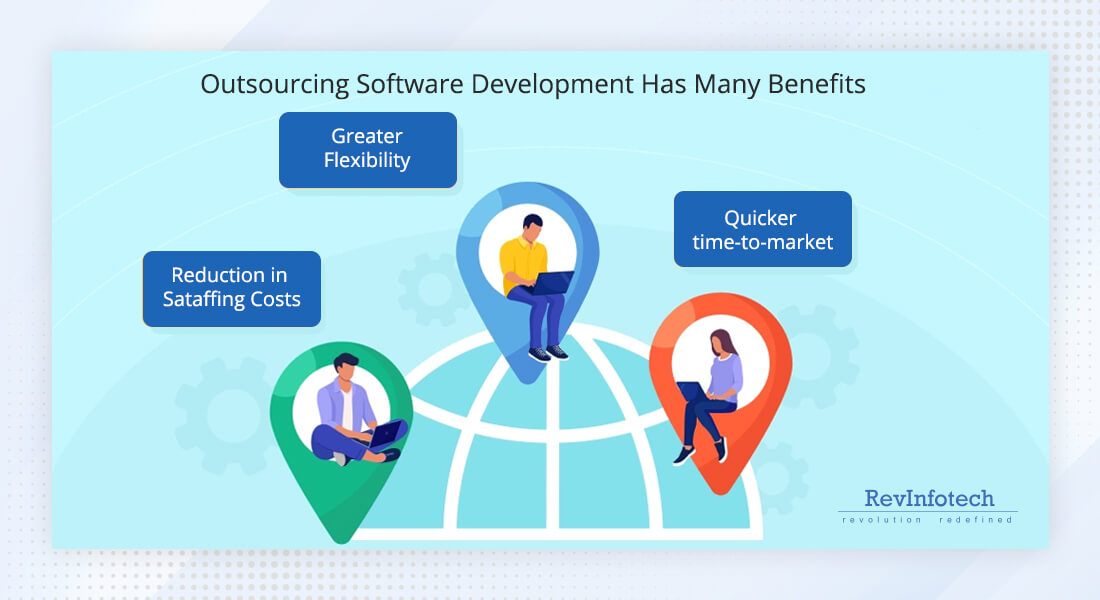Offshore outsourcing software development opens up a world of opportunities for businesses looking to streamline their processes and cut costs. By exploring the ins and outs of this practice, we uncover the key strategies and considerations that can lead to successful outcomes.
From defining what offshore outsourcing entails to examining popular destinations and emerging trends, this comprehensive guide will equip you with the knowledge needed to make informed decisions in the realm of software development.
Definition of Offshore Outsourcing Software Development
Offshore outsourcing software development refers to the practice of hiring a third-party company located in a different country to handle the design, development, and maintenance of software applications. This approach allows businesses to access a global talent pool, reduce costs, and focus on their core competencies.
Examples of Offshore Outsourcing Software Development Companies
- Infosys: A multinational corporation based in India that offers software development and outsourcing services to clients worldwide.
- Accenture: A global professional services company that provides a wide range of services, including software development outsourcing.
- EPAM Systems: A software engineering services company with a strong presence in Eastern Europe, offering offshore outsourcing solutions.
Benefits of Offshore Outsourcing Software Development
- Cost-efficiency: Offshore outsourcing often allows companies to access skilled developers at a lower cost compared to hiring in-house staff.
- Access to global talent: By outsourcing software development offshore, businesses can tap into a diverse pool of talent with specialized skills and expertise.
- Focus on core activities: Outsourcing software development tasks can free up internal resources, enabling companies to focus on their core business functions and strategic initiatives.
- Scalability: Offshore outsourcing provides flexibility in scaling development teams up or down based on project requirements, reducing the need for long-term commitments.
Factors to Consider Before Offshore Outsourcing Software Development
When considering offshore outsourcing software development, businesses must take several key factors into account to ensure successful outcomes. Comparing offshore outsourcing to onshore development in terms of cost, quality, and expertise is crucial, as well as understanding the risks associated with this approach.
Cost Considerations
- Offshore outsourcing can often result in lower costs due to differences in labor rates between countries.
- However, hidden costs such as communication expenses, travel costs, and time zone differences should also be factored in.
- Onshore development may have higher upfront costs but can lead to better cost control and easier communication.
Quality and Expertise
- Offshore outsourcing may offer access to a larger talent pool and specialized skills that are not available locally.
- However, language barriers, cultural differences, and varying quality standards can impact the overall quality of the software developed.
- Onshore development may provide better quality control, easier collaboration, and faster problem-solving due to closer proximity.
Risks of Offshore Outsourcing, Offshore outsourcing software development
- Security risks, such as data breaches and intellectual property theft, can be higher when working with offshore teams.
- Legal and compliance issues may arise due to differences in regulations and laws across countries.
- Communication challenges, time zone differences, and lack of control over the development process are common risks associated with offshore outsourcing.
Popular Offshore Outsourcing Destinations for Software Development
When it comes to offshore outsourcing software development, there are several countries that are popular choices for businesses looking to cut costs and access a larger talent pool. Each country offers its own set of advantages and disadvantages, so it’s important to carefully consider which destination aligns best with your project requirements.
India
India is one of the most well-known destinations for offshore software development. It has a large pool of highly skilled and English-speaking developers, making communication easier. The cost of outsourcing to India is relatively low compared to other countries. However, cultural differences and time zone variations can sometimes pose challenges for project management.
China
China is another popular destination for software development outsourcing. It offers competitive pricing and a rapidly growing tech industry. However, intellectual property concerns and language barriers can be potential drawbacks when outsourcing to China.
Ukraine
Ukraine is gaining popularity as an offshore outsourcing destination due to its highly skilled developers and competitive pricing. It also has a similar time zone to many European countries, making collaboration easier. However, political instability in the region can sometimes be a concern for businesses.
Philippines
The Philippines is known for its large pool of talented English-speaking developers, making it a preferred destination for customer support and call center services. The country offers competitive pricing and a strong work ethic. However, infrastructure issues and occasional cultural differences may impact project delivery timelines.
Poland
Poland has emerged as a key player in the software development outsourcing market due to its skilled workforce and proximity to major European markets. The country offers high-quality services at competitive prices. However, language barriers and higher labor costs compared to some other destinations can be factors to consider.
Cultural Differences
Cultural differences can play a significant role in offshore outsourcing projects. Understanding and respecting the cultural norms of the country you are outsourcing to is crucial for successful collaboration. Differences in communication styles, work ethics, and business practices can impact project timelines and outcomes. It’s important to address these differences upfront and establish clear communication channels to ensure a smooth workflow.
Best Practices for Managing Offshore Outsourcing Software Development Projects

Effective management of offshore outsourcing software development projects is crucial for success. Here are some best practices to consider:
Tips for Effective Communication with Offshore Development Teams
- Utilize multiple communication channels such as emails, video conferencing, and instant messaging to ensure constant and clear communication.
- Establish regular meetings to discuss project progress, address any concerns, and align on goals.
- Encourage open communication and feedback to foster a collaborative environment.
- Consider cultural differences and language barriers, and provide necessary training or resources for effective communication.
The Importance of Setting Clear Expectations and Deliverables
- Define project scope, objectives, timelines, and milestones clearly from the outset to avoid misunderstandings.
- Document requirements and specifications comprehensively to provide a detailed roadmap for the offshore team.
- Agree on key performance indicators (KPIs) and metrics to measure project progress and success.
- Regularly review and update expectations and deliverables based on feedback and changing project requirements.
Strategies for Overcoming Time Zone Differences in Offshore Outsourcing
- Establish overlapping work hours to facilitate real-time communication and collaboration.
- Use project management tools and software to track progress, assign tasks, and maintain visibility across different time zones.
- Plan ahead for time zone variances by scheduling meetings and deadlines that accommodate all team members.
- Encourage flexibility and understanding among team members regarding work hours and availability.
Emerging Trends in Offshore Outsourcing Software Development

The landscape of offshore outsourcing software development is constantly evolving, driven by technological advancements and changing market demands. Two significant trends shaping the future of this industry are the integration of AI and automation technologies and the shift towards agile methodologies.
Impact of AI and Automation
AI and automation technologies are revolutionizing offshore outsourcing software development by streamlining processes, enhancing efficiency, and reducing human error. These technologies enable companies to automate repetitive tasks, improve decision-making processes, and drive innovation in product development. By leveraging AI and automation, offshore outsourcing partners can deliver high-quality solutions faster and more cost-effectively.
Shift towards Agile Methodologies
Agile methodologies are gaining popularity in offshore software development as they promote flexibility, collaboration, and iterative development. Agile practices enable offshore teams to adapt to changing requirements, deliver incremental updates, and ensure better alignment with client expectations. By embracing agile methodologies, offshore outsourcing partners can enhance communication, accelerate project delivery, and improve overall project outcomes.
Future Outlook of Offshore Outsourcing
The future of offshore outsourcing in the global tech industry looks promising, with a continued focus on innovation, collaboration, and value delivery. As technology continues to advance, offshore outsourcing partners will need to stay agile, embrace emerging technologies, and prioritize customer-centric solutions. The key to success in offshore outsourcing lies in building strong partnerships, fostering transparent communication, and driving continuous improvement in processes and practices.
Final Thoughts

As technology continues to evolve, offshore outsourcing software development remains a viable option for companies seeking innovation and growth. By implementing best practices and staying abreast of industry trends, businesses can harness the power of global talent to drive success in a competitive market landscape.
Common Queries
What are some key benefits of offshore outsourcing software development?
Offshore outsourcing can lead to cost savings, access to global talent, increased flexibility, and accelerated project timelines.
How can businesses effectively manage offshore outsourcing projects?
Effective communication, setting clear expectations, establishing strong partnerships, and leveraging project management tools are essential for successful project management.
What are some emerging trends shaping offshore outsourcing software development?
Technologies like AI and automation, the adoption of agile methodologies, and the evolution of global collaboration tools are transforming the landscape of offshore software development.
